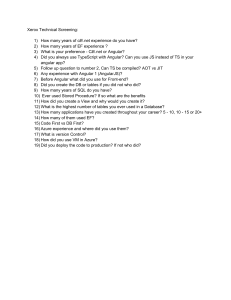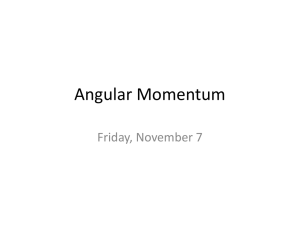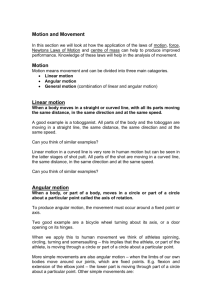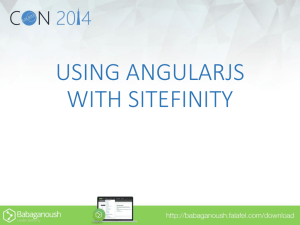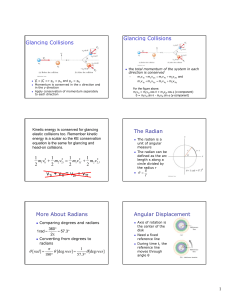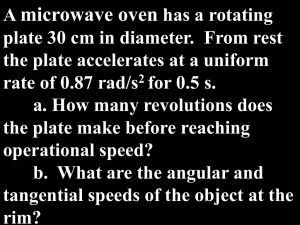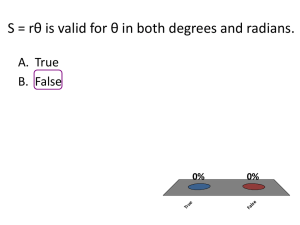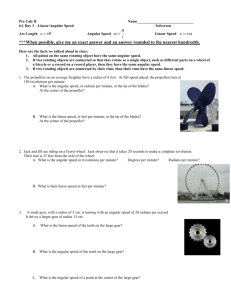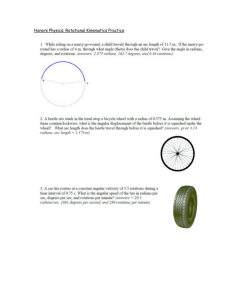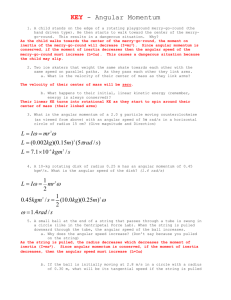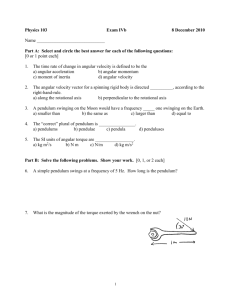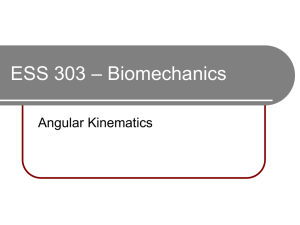Angular Slides - Sergey Barskiy`s Blog
advertisement
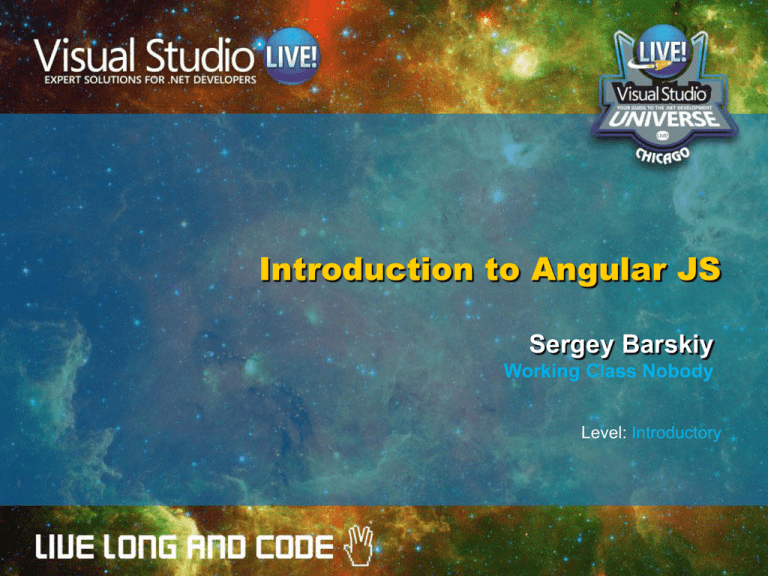
Introduction to Angular JS Sergey Barskiy Working Class Nobody Level: Introductory What is Angular? • • • “Superheroic MVW framework” http://angularjs.org/ JavaScript framework for building (mostly) single page web applications (SPAs) MV* pattern based framework. MVC / MV* • • • • • Model – JavaScript objects View – HTML Controller – Controller and Scope objects Main advantage over traditional web app – separation of concerns How do we relate this to XAML – MVVM pattern? Features • Two way data binding – Digest loop – Performance limitations – Compare to Knockout • • • • • Templating Routing Dependency injection Testability Modularity Angular Conceptual Components • • • • Directives - HTML manipulation constructs Filters – data formatting and data filtering constructs Controllers - provide view model that glues HTML to properties and methods of JavaScript objects, expressed through scope. Services – provide functions to controllers, such as access to server data. Angular Built-In Directives • • • • • Application (ngApp) – top level object View (ngView) – placeholder for view templates Controller (ngController) – wires up controller to a subset of DOM Binding (ngModel) – sets up two way data binding Event directives Angular Built-In Directives (Cont.) • • • • • • • (ng assumed in the name) Validation (required, min, max) HTML (show, hide, if, switch, disable, readonly, include) Init Class Repeat Form Angular Built-In Services • • • • • • • • • HTTP ($http) Cache ($cacheFactory) Document ($document) Windows ($window) Timeout ($timeout) Address ($location) Value parser ($parse) Promises ($q) Scope ($rootScope) Angular Methods • There are many helper methods – fromJson, toJson – String manipulations (upper, lower) – Object testing (isObject, isNumber, etc…) More Information • • • http://angularjs.org/ Sergey@Barskiy.com http://DotNetSpeak.com
